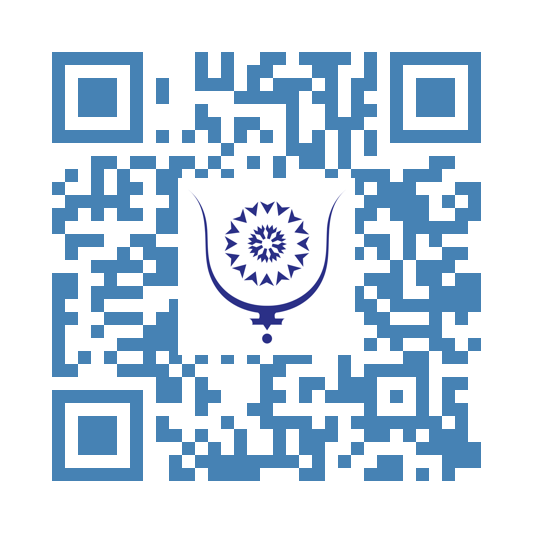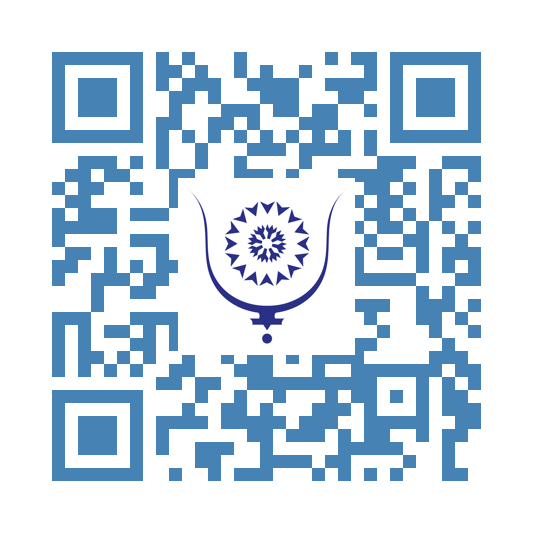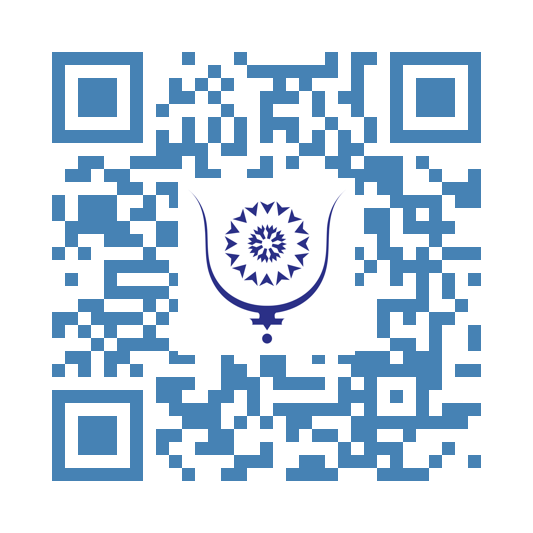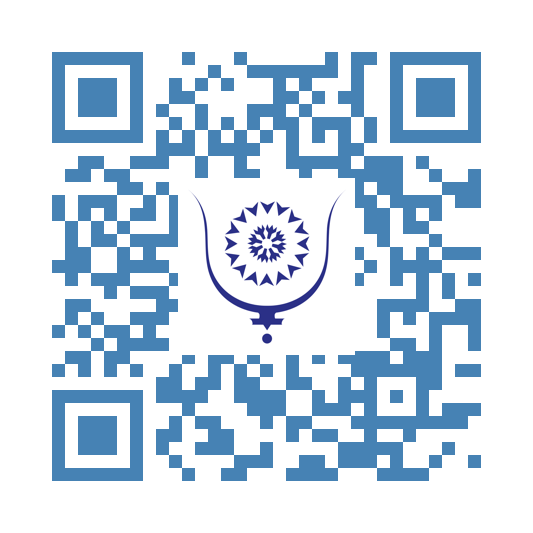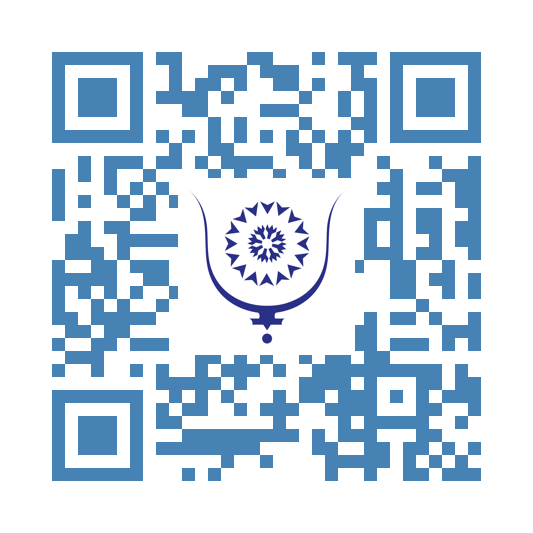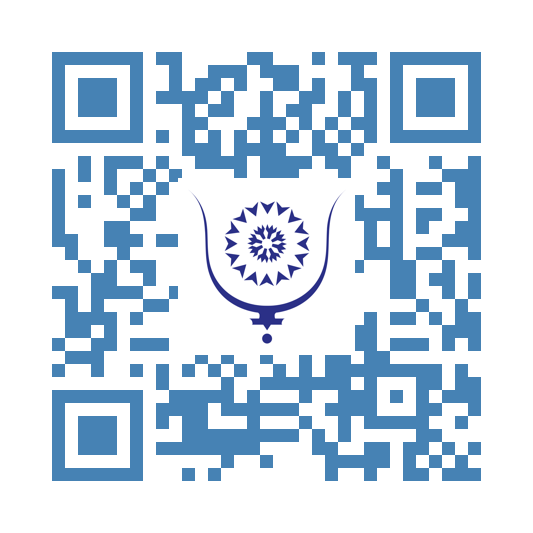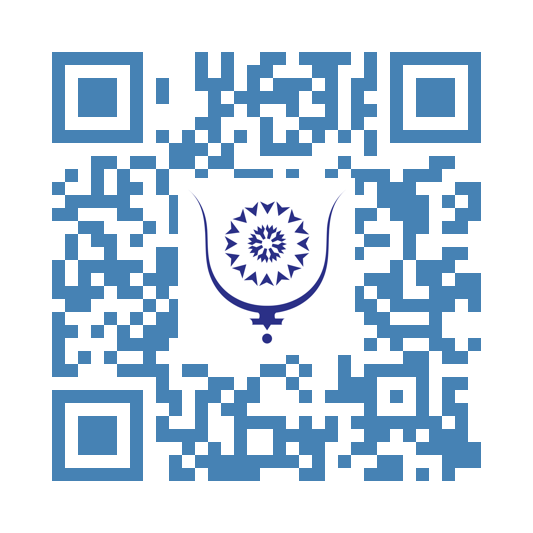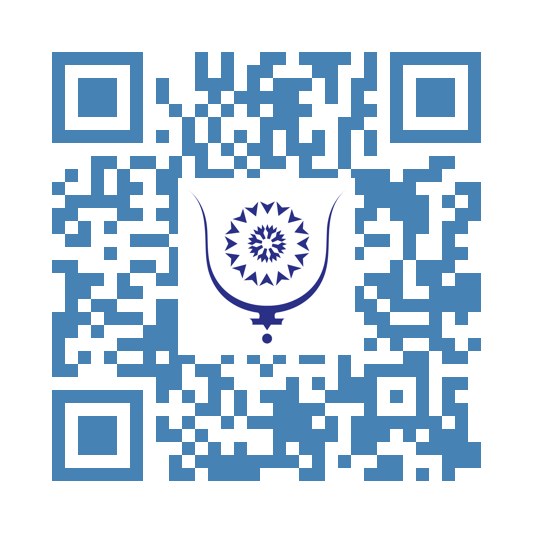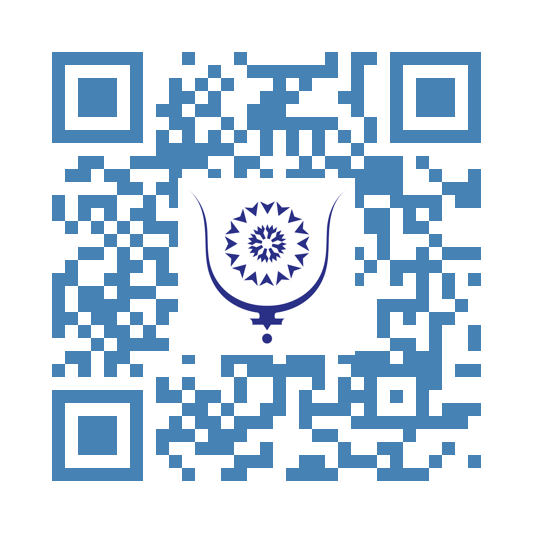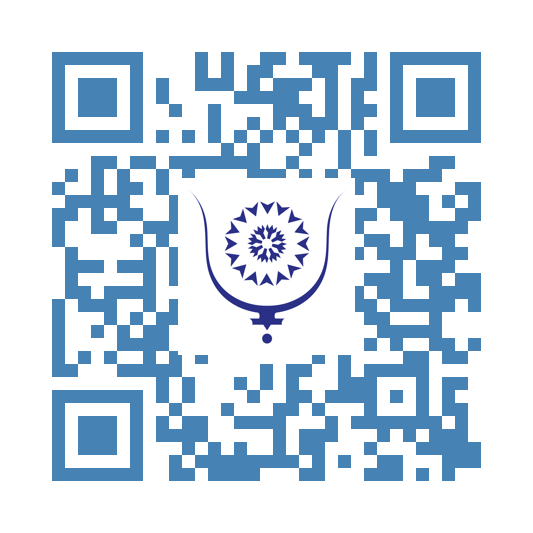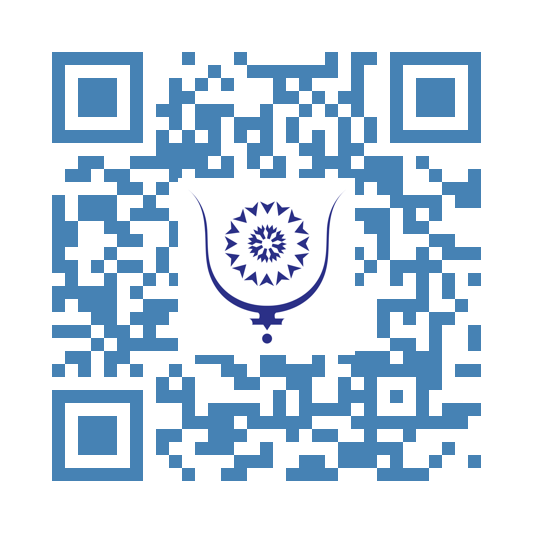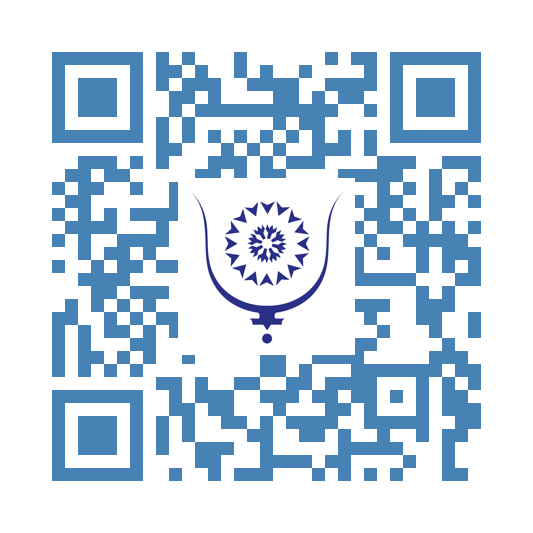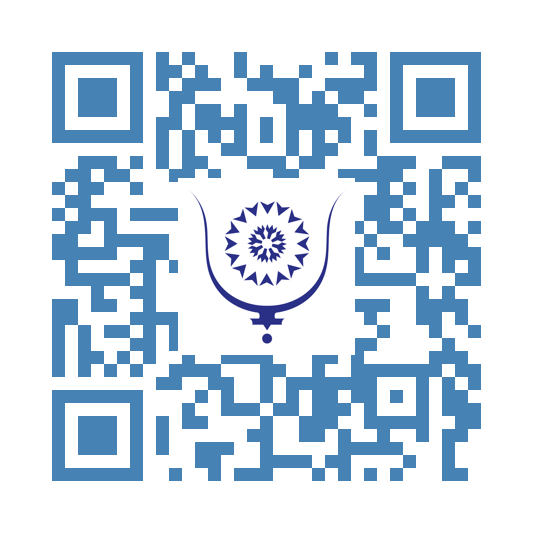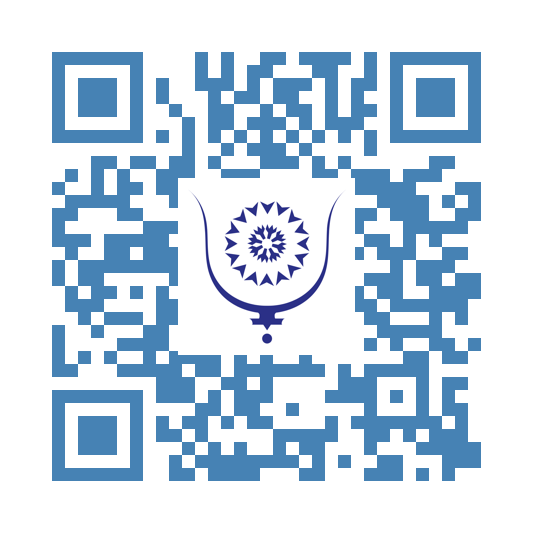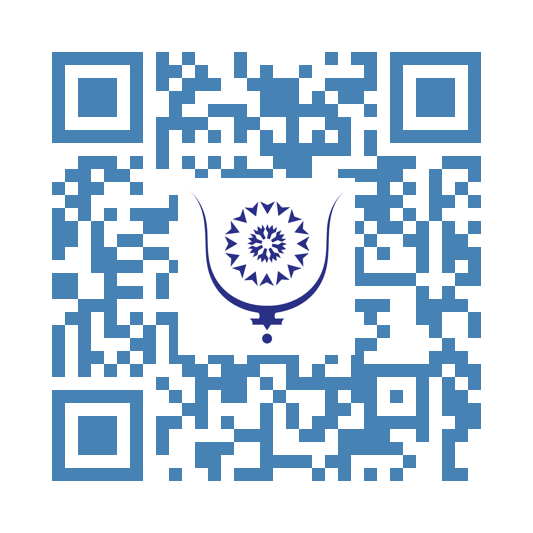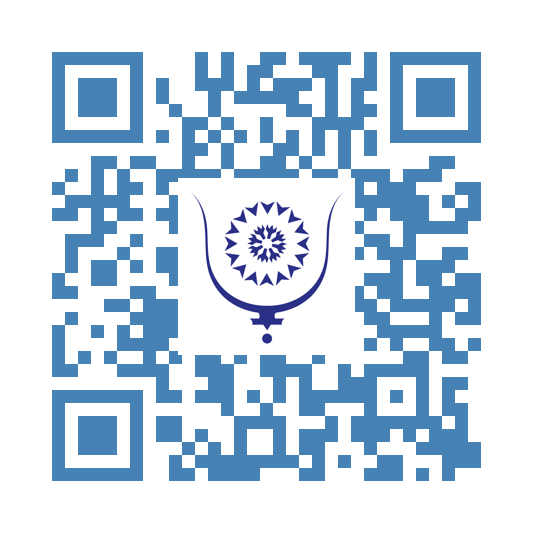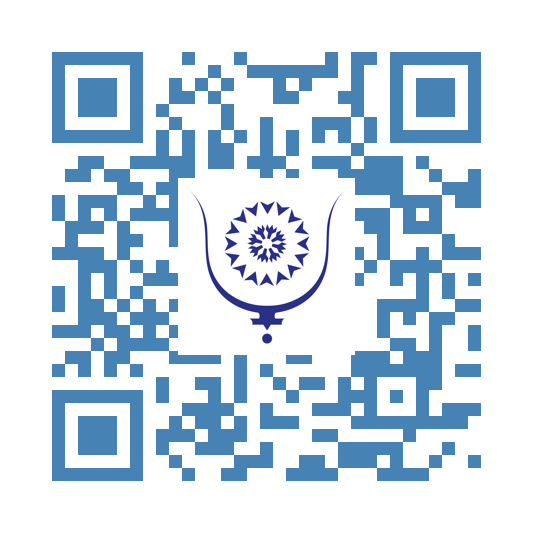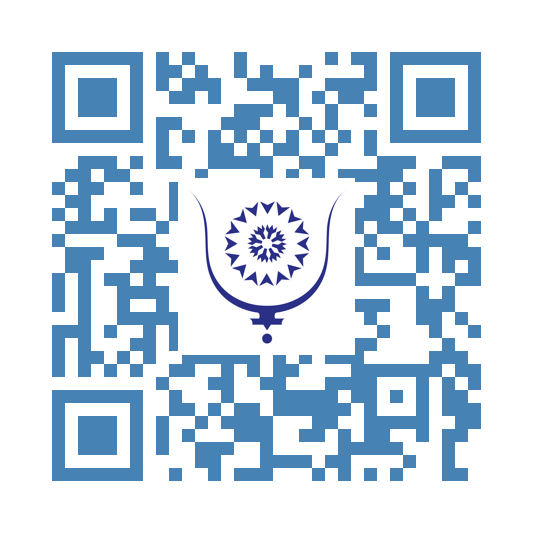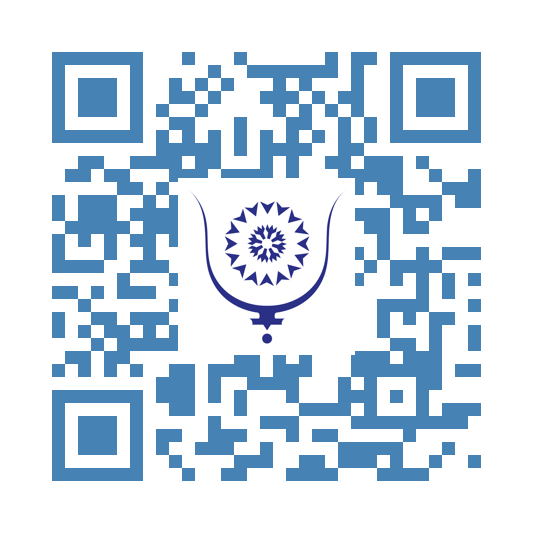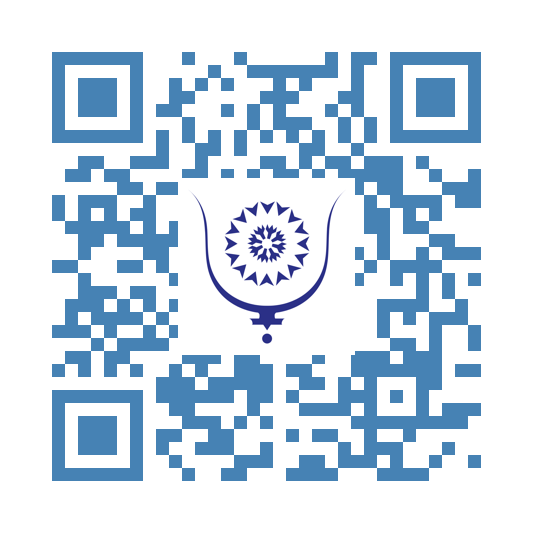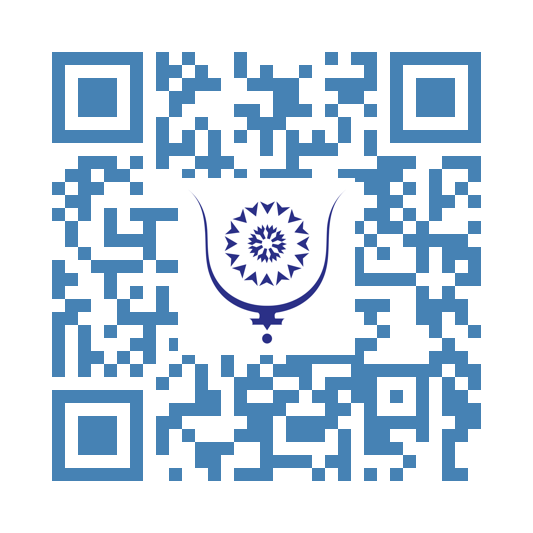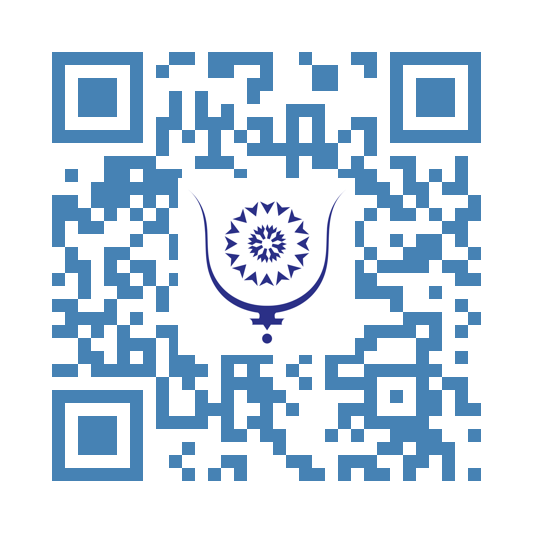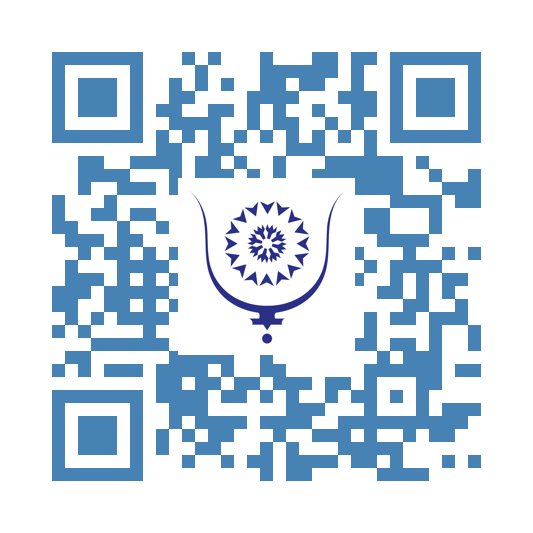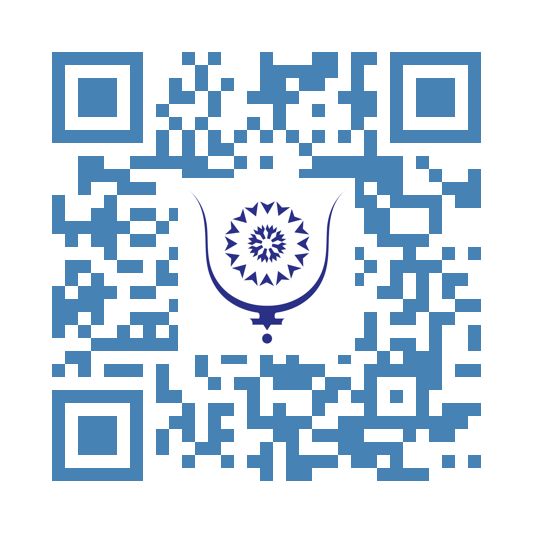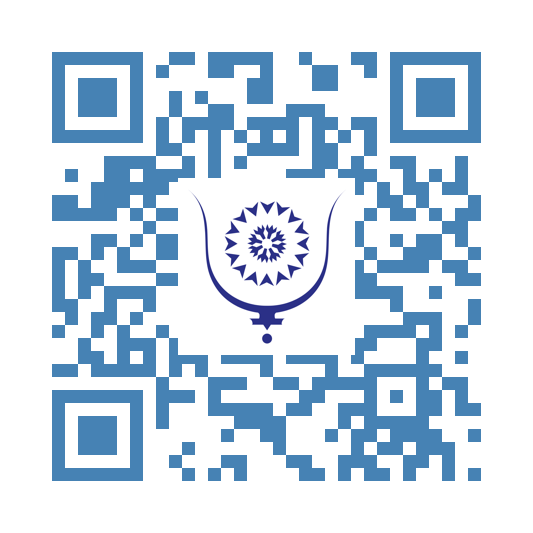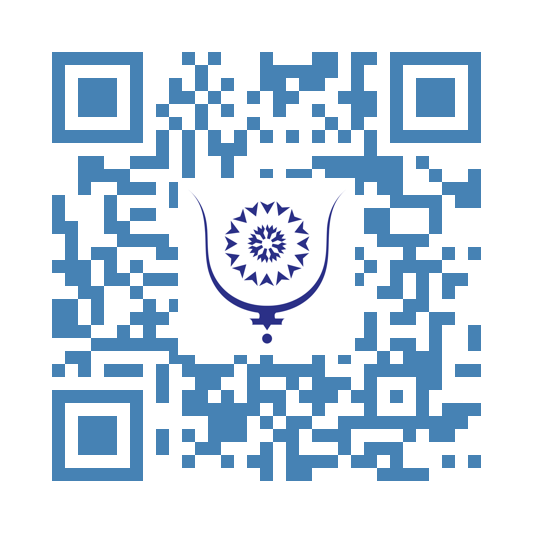From Draft to Exposure Showcase Your Writing
Move your ideas beyond your own screen. Post on Bluwr to give your writing the exposure, attention, and recognition it deserves.

Think Forward.
[Short Stories #2] Don't Extinguish my Flame 5910
*Authors : Tima EL & Khalil Z.*
**In the enchanted realm of Celestria, where every soul possesses a mystical flame known as "Eclipsis," the sky dances with the collective radiance of its people. Amidst this luminous symphony, a shadowy force emerges—a darkness that hungers to shroud the brilliance of these magical flames.**
Enter the Shadowvores, inhabitants of Celestria who are denied the embrace of Eclipsis. Instead, they bear formidable and robust bodies, enhancing their strength by absorbing and extinguishing the radiant Eclipsis flames of others. They embody the antithesis of Celestria, disrupting the delicate balance upheld by the natural ebb and flow of magical flames. With each extinguished Eclipsis flame, the once-vibrant light of Celestria wanes.
At the heart of Celestria lies the Arcane Ember, the source of all Eclipsis flames. The people of Celestria engage in an eternal struggle against the Shadowvores, who crave this magical ember, bestowing absolute power upon its possessor. One fateful day, the Shadowweavers decide to launch a collective assault on the Celestrians, intent on seizing the Arcane Ember—the fount of unparalleled power. The consequence is grave: all the valiant inhabitants of Celestria succumb to the relentless onslaught.
Remaining alone in Celestria, the Shadowvores start to vie for the coveted Arcane Ember. One Shadowweaver, thirsting for power driven by an insatiable hunger, stands before the radiant artifact, proclaiming,* "This is the flame I've been waiting for a long time."* The mystical ember responds with ancient wisdom, saying,* "And I, too, have awaited your presence for a long time."* Perplexed, the Shadowvore questions,* "You've been waiting for me?"*
The Arcane Ember imparts a timeless truth,* "With every day's end, the night descends, and in the darkness, a promise lingers — after every night's embrace, the day invariably returns."* Determined to cast Celestria into eternal darkness, the Shadowvore retorts,* "The night in Celestria will never dawn."* In a plea to preserve its luminance, the Arcane Ember urges,* "Don't extinguish my flame."*
Undeterred, the Shadowvore declares, *"You are the last beacon of light in my darkness. My strength won't reach its zenith if I don't extinguish you."*
The Arcane Ember, embodying the essence of duality, counters, *" Do you think your strength will have meaning after extinguishing me?"*
Undeterred by the wisdom offered, the Shadowvore remains steadfast in their resolve. *"I care not for the meaning of strength. I crave power, dominance, and the eternal night that shall reign over Celestria,"* they declare with an ominous intensity.
The Arcane Ember's voice resonates with a potent echo,* "In your pursuit of power, you risk losing the very foundation of existence. Celestria thrives on the delicate dance between opposites. Darkness needs light, just as strength needs meaning. Without balance, your power becomes an empty void. Let the day dawn again."*
A profound silence envelops the realm of Celestria as the clash between light and darkness reaches its zenith, echoing through the magical tapestry of this enchanted world....
Note : "The link below contains the image that is the source of inspiration for writing this short story :) "
You are leaving Bluwr.
We cannot guarantee what's on the other side of this link:
https://drive.google.com/file/d/1UMTqnOD2RMvleaENcglAS3fkI7r0qmVF/view?usp=sharing
French Expedition of Larache 1765 , Tale of a Moroccan Victory 4875
The Seven Years' war has just ended in 1763, considered to be the real 1st world war. It was a deadly and costly war that left all belligerents heavily in debt. For instance this was the main reason that lead to the American War of Independence.
During this war, Moroccan pirates harassed French ships, not hesitating to attack merchant ships and lonely warships.
The King of France Louis XV tried to buy peace from the Moroccan sultan Mohammed III but faced with failure in negotiations, he decided to launch a punitive expedition against the sultan.
He charged the chef d'escadre du Chaffault with this expedition. Du Chaffault set sail in 1765 for the Moroccan coasts at the head of a squadron composed of 16 ships. Count De Grasse, another famous figure, was also in the party.
During their journey, they surprised Moroccan pirates hiding at the mouth of the Loukkous river, they managed to destroy a brigantine and 2 other ships that the corsairs had captured the day before using a xebec. The latter managed to take refuge in Larache.
The squadron arrived at Salé and began to bombard it. The Moroccans responded with heavy fire using 9 batteries, 4 in Salé-le-Vieux and 5 in Salé-le-Neuf(Rabat). The French had the technological edge, but the Moroccan steady fire prevented the french guns from being accurate.
The French abandoned the idea of entering the river alerted, by a nearby Swedish ship, that the Moors are in numbers and on the lookout. The King of Morocco, and his guard was also present in Rabat. Furthermore, the mouth of Bouregreg is narrow and presents an ambush risk.
Du Chaffault then decides to find a Moroccan port that is easier to punish. They left for Mamora (Mehdia) but the bad weather and the presence of only one small ship in the river was not enough for the French. They decided afterwards to leave for Larache.
During their misty journey, they came face to face with a Senau (img) of Swedish origin, previously captured by the privateers, which was on his way to resupply Salé with ammunition. After his capture Du chaffault sent it to Brest under good escort.
In front of Larache, they saw La Sirene, a large French merchant ship taken by the Moors at Cadiz in 1764. The temptation to burn this prize was irresistible. Using a diversionary tactic, they tried to go straight to burn La Sirene but the swell prevented them from doing so.
In the meantime, French ships' artillery was able to silence the batteries of Larache citadel. The citadel was built by the Portuguese in order to resist land attacks and not sea ones.
Using their longboat, the French launched a 2nd and a 3rd expedition to burn Moroccan ships but with no success. They decided to launch a 4th attack, deeper this time. But the Moroccans had prepared a ruse. They left few ships near the port as baits.
They deployed their skirmishers in well hidden positions on both sides of the shore. As the French longboats progressed, they were taken in enfilade by Moroccan fire. More than 4000 Moors surrounded the French and began to approach them. It was a massacre.
Between 200 and 450 KIA on the French side. Many of those who tried to flee were drowned, very few managed to escape to their ships. The wounded one were finished with axes and their heads were cut off. The survivors were enslaved and sent to build Mogador(Essaouira).
One of the survivors Bidé de Maurville would later write a book: "Relation de l'affaire de Larache". France will later pay a heavy price for the release of the captives. The French navy was humiliated a second time after the Seven Years' War.
You are leaving Bluwr.
We cannot guarantee what's on the other side of this link:
https://twitter.com/CoolTheCucumber/status/1343278821122985984
AN INTERNATIONAL CONFERENCE ON PHENYLKETONURIA IN MOROCCO 4870
The 2nd international conference on phenylketonuria (PKU) was held on November 17-19, 2023, in Marrakech. This event was co-organized by 4 associations: The Moroccan Association for Child and Mother’s Health (AMSEM), HMEMSA (Home of Moroccan Educators and Moroccan Students in America), SOS PKU MAROC, American Moroccan Competencies Network, and the support of the Alliance of Rare Diseases in Morocco (AMRM).
INFORMATION AND AWARENESS FOR HEALTH PROFESSIONALS AS WELL AS PATIENTS AND FAMILIES
This event aimed to promote the health of affected people with this disease through education, awareness, and support for research. PKU is a rare hereditary disease responsible, in the absence of diagnosis and early treatment, for psychomotor and mental retardation with serious consequences. The accumulation of an aminoacid (phenylalanine) becomes toxic and destroys the nerve cells in the brain. The only available treatment is a diet based on dietary products with low amounts of phenylalanine, which are, unfortunately, very expensive.
Eminent specialists from Morocco, the United States, Canada, and Europe intervened during the first scientific day. The 2nd day “PKU family camp” was dedicated to families, patients, and medical professionals to exchange the right support for parents with PKU patients and the long-life management of these patients. The day will was also an opportunity for the clinician specialists to offer consultations to patients and psycho-educational support to their families.
AN AFFLICTION WITH TOO OFTEN IRREVERSIBLE CONSEQUENCES
PKU is caused by a disorder in the metabolism of phenylalanine, an aminoacid (protein fragment) present in food, and typically transformed into another aminoacid, tyrosine. The enzyme responsible for this aminoacid conversion is defective in PKU patients. The PKU babies gradually develop mental and psychomotor retardation with symptoms such as seizures, nausea and vomiting, skin rash, hyperactivity, aggression or self-harm, reduced head circumference (microcephaly), lighter skin, eyes and hair (a result of tyrosine deficiency). Children often have a “mousy” or musty odor due to a phenylalanine by product in their urine and sweat.
THE DIET IS “AN ALMOST IMPOSSIBLE MISSION.”
The child must follow a very strict low-protein diet, where meat, fish, eggs, dairy products, and starchy foods are eliminated until the age of 12, then, depending on the case, relaxed during adolescence. The precarious availability in Morocco and the high cost of specific dietary products (flour, special pasta, complementary solutions, etc.) often mean that children “literally starve” to respect these rules. A box of specific milk for children costs around 500 Dh and is rarely available in Morocco! In addition, a medication that stimulates the breakdown of phenylalanine and helps reduce the diet in some children exists but is also unavailable! In addition to the enormous constraints generated by the disease, families experience a “real struggle” between the high cost and unavailability of treatment! We must underline the significant assistance the association HEMSA in the US provided for shipping dietary products to SOS PKU in Morocco and their continuous advocacy efforts to have PKU recognized in Morocco.
A LIFE-SAVING GESTURE BUT UNFORTUNATELY NOT SYSTEMATIZED IN MOROCCO : NEONATAL SCREENING
Depending on the country, the disease affects between 1 in 20,000 and 1 in 4,000 newborns. Morocco most likely has a high prevalence due to the high consanguinity in the society, which increases the frequency of this genetic disease. Typically, this disease must be screened systematically in all newborns; the absence of this screening and the early regime results in several thousand children and adults with mental disabilities. This test, carried out using a few drops of blood taken on the 3rd day of life and placed on a blotting paper, would make it possible to avoid these complications. The test already exists in all European and certain Arab countries.
CONSULTATION WITH PUBLIC AUTHORITIES
Discussions are underway with the Ministry of Health and the various stakeholders for recognizing PKU as a long-term condition, launching a neonatal screening program, and marketing dietary products in Morocco. The event was an an excellent opportunity to sign partnership agreements between AMSEM and SOS PKU MAROC with the Alliance of Rare Diseases in Morocco. This exciting development will undoubtedly pave the way for fruitful collaboration between these organizations, improve and save lives, reduce PKU patients suffering, and provide substantial spill over benefits for maternal, child, and family health.
Dr MOUSSAYER KHADIJA الدكتورة خديجة موسيار
Chairwoman of Alliance Rare diseases Morocco
RESUME EN FRANÇAIS
Les 17 et 18 novembre 2023 s’est tenue à Marrakech la 2ème conférence internationale sur la phénylcétonurie (PCU), coorganisée par 4 entités : Association Marocaine pour la Santé de l’Enfant et de la Mère (AMSEM), HMEMSA (Home of Moroccan Educators and Moroccan Students in America), SOS PKU MAROC, American Moroccan Competencies Network et avec le soutien de l’Alliance des Maladies Rares au Maroc (AMRM).
Cet évènement avait pour objectif de promouvoir la santé des personnes atteinte à travers l’éducation, la sensibilisation et le soutien à la recherche. La PCU est une maladie rare héréditaire responsable, en absence de diagnostic et de prise en charge précoce, d’un retard psychomoteur et mental aux conséquences graves, à la suite de la destruction des cellules nerveuses du cerveau par l’accumulation toxique d’un acide aminé (phénylalanine). Le seul traitement est un régime alimentaire se basant sur des produits diététiques faibles en phénylalanine, malheureusement très chers.
D’éminents spécialistes du Maroc, des Etats Unis, du Canada et d’Europe sont intervenus lors d’une 1ère journée scientifique. La 2ème journée, le « PKU family camp », a été dédiée aux familles, patients et aussi au corps médical pour échanger et faire connaître les bonnes pratiques au quotidien, notamment pour une meilleure efficience du régime.
From 'Yikes!' to 'Yes, Please!': Snake Venom's Medical Magic 5095
Think of snake venom as nature's spicy sauce – it's not just for biting! Each snake mixes its own special blend, some zapping nerves (neurotoxic) and others messing with blood (hemotoxic).
But here's the fun twist: this scary snake juice is stirring up some medical magic. Got high blood pressure? Thank pit vipers for Captopril. Clotty blood? Tip your hat to the tiny pygmy rattlesnake for Eptifibatide.
Who knew snake venom could go from 'Yikes!' to 'Yes, please!' in the world of medicine?
The Misadventures of a Helpful Bionic Arm 4872
Once there was a man with a bionic arm that had a mind of its own. One day, while dining in a fancy restaurant, his bionic arm suddenly decided to help. It began pouring water, but missed the glass, showering a nearby cat instead. The cat, startled, leaped onto the chandelier. The man, embarrassed, tried to control his arm, but it enthusiastically started serving bread to everyone, including a bewildered dog outside. The chaos ended with a round of applause from the amused diners and a very proud bionic arm, convinced it was the best waiter ever.
The adventures of Billy (part 1) 4888
Billy liked driving his car
To see his friends who lived afar
Billy's driving wasn't intricate
He never forgot to indicate
Except sometimes at roundabouts
His indicator would mess about
And so did Billy wonder
Was it for worse or for better
That he should think less
But to endure the stress
Of never knowing which
Turn would make it glitch
And so did billy wonder
And so did billy wonder
The Ideal 5695
As the biggest ape was at his desk, a small child approached him. He was tiny, much smaller than children his age with clear, sparkling eyes.
-"What are you doing", said the child.
-"I am writing a book", said the biggest ape.
-"About what?"
-"The ideal."
The child paused a minute, thinking.
-"Are you the ideal?"
-"No."
-"Have you seen it?"
-"No."
"Then how can you write about something you don't know?"
The biggest paused and laughed.
-"That is the nature of the ideal.", said the biggest ape. "It can always be perceived, but never seen. When you call upon it, it comes. Never fully, never for long. When you've been touched by it, it is your duty to keep some of it's sent about you."
Turning towards the child he added.
-"This is how you call the ideal: you think about it, you perceive it and you write about it. So others as well might be touched by it".
-"I understand."
Thus spake the child.
[ML Tutorials #3] Four keys to create supervised learning model 5035
Supervised learning is a strategy in machine learning that enables a model to learn from data without being explicitly programmed. In other words, in supervised learning, the model tries to find the relationship between the "input" X and the "output" Y. Therefore, the first key to creating a supervised learning model is the dataset.
**Key 1 : Dataset**
Having a labeled dataset is essential, including two important types of information: the target variable Y, which is what we want to predict, and the explanatory variable X, which are the factors that help us make predictions. Let's take an example: imagine we want our model to predict the weather (Y) based on factors like temperature, humidity, and wind speed (X). To do this, we gather a dataset with information from the past, where we already know both the weather outcomes (Y) and the corresponding factors (X). This dataset acts like a box of puzzle pieces. Each piece represents one of the factors, and finding the relationship between these pieces defines the weather.
We can represent this relationship as a mathematical equation, like this: Y = F(X), where F represents our model. Therefore, the second key is the Model.
**Key 2: Model**
The fundamental model in supervised machine learning is a linear model expressed as y = ax + b. However, the real world often presents nonlinear problems. In such cases, we explore non-linear models, such as a polynomial of degree two like y = ax² + bx + c, or even of degree three, and beyond. It's crucial to understand that each model has parameters requiring adjustment during training. Consequently, the two remaining critical components are the cost function and the optimization algorithm.
**Key 3 : Cost Function**
In machine learning, a cost function, also called a loss or objective function, quantifies the gap between the target and predicted values, signifying the model's error. The aim is to minimize this error to craft the most effective model.
**Key 4 : Optimizer**
Optimizer forms the core of a machine learning model, representing the strategy to discover parameter values that minimize the cost function. It plays a crucial role in fine-tuning the model for optimal performance.
Part 5/5: PhD - The Eternal Optimist: Next Time Will Be Different (But Not Really) 4573
PhD Students: Where Schedules are Fiction and Coffee is King!
"Colorful Calendars, Doomed to Fail": PhD students craft rainbow schedules, thinking this time it'll stick. Spoiler: It doesn't.
"Surprise! More Work": Just when they think they've got it sorted, in swoops an email with a 'fun' new task. So long, free time!
"Becoming a Night Creature": Who needs sunlight? The real magic happens at 2 AM, fueled by the glow of a laptop screen.
"Coffee: The New Water": PhD students don't just drink coffee; they breathe it. It's not a choice; it's survival.
"Procrastination Olympics": Watch as they masterfully avoid work by reorganizing sock drawers. Followed by panic-induced hyper-productivity.
"Time, What's That?": One minute it's Monday; next, it's deadline day. Time flies when you're... panicking.
"Free Time? Sounds Fake": When they do get a break, they're too puzzled to enjoy it. Ends up napping with books as pillows.
"Deadline Superhero Mode": Everything gets done in a last-minute frenzy. How? Magic (and maybe a bit of crying).
"Post-Deadline Amnesia": Once it's over, they forget the chaos and swear to never repeat it. Narrator: "They will."
"Next Time Will Be Different": The eternal PhD mantra. Hope springs eternal, but so does the chaos.
Basically, PhD students are like superheroes who fight the villains of procrastination and deadlines with the power of caffeine and last-minute panic. "Running on coffee and a questionable understanding of time management!"
Melusine - Part 1 4684
The sun, that day, had forgotten to set.
As he was reclining on a curvy and narrow chaise longue, Sebastian Byrne looked at the slant rays glimmering through the yellowing leaves on the lowest branches of the elms. Their brass-trimmed green lace ebbed and flowed as the wind blew away the last minutes of the golden hour. Sebastian brought the quilt closer to his neck.
He sighed, scattering some crumbs around for the birds; but that evening none dared to fly by. Maybe Nathan had lost track of time on his way to the post office and back, and would not come, as he promised, before dusk. They had always watched the sun set together. They did so for the last six weeks, before Sebastian fell ill; and for the first day he could step outside, Nathan did not even bother to be on time. Undergrads will be undergrads… Sebastian was staring absentmindedly at the slow, suspended vanishing of the light when muffled footsteps echoed down the hill, along the side path that lead to the verandah.
- Sebastian!
The silvery voice rushed towards Sebastian, followed from a distance by a buoyant, youthful figure clad in light linen, waving a folded paper. The figure flew nearer, leaping, kid-like, on the smooth slope where Mrs Byrne’s garden weaved itself into a wilderness of low bushes and wild roses.
A smile flickered across Sebastian’s thin, slightly parched lips, and disappeared. He had always seen Nathan skipping and leaping around, from the day he had interviewed him as a candidate for Oxford. While most of the applicants were timidly sliming along the college’s staircases and the tutors’ questions, Nathan jumped along the steps as he did through Greek and Latin periods. A rare breed he was, that seventeen-year-old brat, in a time when undergraduate faces were drawn by sullenness and tedious ploughing.
And here he was, two years later, running back from Mrs Byrne’s country house, a letter in his hand. It was that white rectangle that chased Sebastian’s smile away. It was, doubtlessly, the answer Nathan had been expecting for weeks.
Sebastian, they wrote back!
« I know », thought Sebastian. « They wrote back and had the answer been negative, you would not have leaped so vivaciously, would you now? »
Presently Nathan threw himself on the chaise longue, which squeaked under the attack, and stuck the letter under Sebastian’s nose.
- Tolle, lege!
Sebastian’s lips quivered as he caught glimpses of the words carefully drawn in dense black ink on the white paper. The handwriting leaned gently towards the right, on even lines that left an elegant margin on each side of the silken-white paper.
Dear Sir,
I am very grateful for you reply. I have read the reference letter sent to me by Doctor Byrne with great interest and his account of your accomplishments… We are very pleased that you are able to join us in spite of the circumstances… Looking forward…
Did Madame de La S*** answer herself? Sebastian did not read any further. The thin, straight lines seemed to curl up, fading into one another, becoming barely legible. He smiled and extended his hand:
« Well done, young man. This is an unexpected step, but an expected success. And they seem quite keen. » The last paragraph was indeed pressuring. It was urgent that the position would be filled. As many other applicants had manifested interest, Nathan was expected to arrive as early as possible, or they will be forced to hire someone else. « I would need to go as early as possible, maybe the day after tomorrow », said Nathan.
It was not until then that Nathan looked at his tutor’s face. As the golden sunlight was turning to purple, he realized the sudden and deep changes the disease had impressed on Sebastian Byrne’s face, once full of strength, intelligence, and mercy. When he had first met Sebastian — then Doctor Byrne to him, Nathaniel Kiernan fell under the spell of these grey eyes, so deeply grey they sometimes seemed black. For two years, almost every day, he had sat under their keen gaze in Sebastian’s room, a shabby but spacious set that overlooked Saint Mary’s tower and the Bodleian’s dome.
Those were the days we shall remember as the last golden golden glory sining over the Spires. Not that these were better days, but this time is gone. Surely, then, tutors complained about the termly fifth)week gloom, about the food, at times too rich and at times too poor, and about the noises that the new automobiles made, covering the trodding and rattling of the carriages. Those days poured over the city one after the other, year after year. Matriculation speech faded into Christmas carols as we snuggled in library nooks during the winter; then Summer Eights dragged us out by the river, revision books in hand, then graduation ceremonies rushed upon us and after the long, and yet too short, summer vacation, Matriculation happened again, ushering in a new cohort of Freshers’ faces, at once enthusiastic and anxious, the youthful barbarians from Eton or Harrow, the models of appropriateness from hard-working grammar schools. Under the gaze of the dreaming spires, the streets teemed with laughter that rang along the chiming bells, with inebriated songs at the crack of dawn, with the joyful glee and careless wrath that came with the examinations’ results. While the colleges remained unchanged, their stones and statues clad in centuries of iteration, the young faces around made every morning new. Even Sir Rayleigh, the provost, seemed like a playful young man to Nathan the first time he met him, his eyes sparkling with cheerful wit under his wrinkled forehead and his snow-white hair.
Nathan was one of these modern foundlings, all family ties loosened by a scandalous divorce that threw the name he bore into shame, then into oblivion. Her mother at least had the decency to spare enough money for his education but just enough. Her family would refuse to do anything for a Kiernan boy. As he settled in Oxford, Nathan saw Doctor Byrne as a master more than a tutor. He was impressed by the man’s thoughtful silences as much as by his constant good spirits; he mimicked the way Byrne’s long white fingers rose in a slow arabesque before he spoke, strived to reform the sharp angles of his character to match Byrne’s composed temperance, and copied Byrne’s way of parting his hair in a falsely messy line he wore slightly askew. « Byrne has his way with the young gentlemen, the provost used to say. He talks to them like he was their father, and smiles at them like he was their sister! ».
What a difference a few months had made. Oxford, in a few days, was deserted as people ran away from a nameless disease, that seemed to appear nowhere else.
The nomad developer setup #2: infrastructure as code 4375
In a first article, I shared a quick and easy way to access VScode from any browser. You still need to create a cloud provider account and setup a server. In this second article I will share with you a way to automate all the steps needed from the moment you have created your account to using VScode in the browser. In order to do this I am sharing a GitHub repo at the end of this article. It contains all the Infrastructure as Code (IaC) you need.
IaC is a practice in software engineering, mostly on the devops side, that involves managing and provisioning infrastructure through code, rather than manual processes. It allows for the automated deployment and configuration of infrastructure, enabling consistency, scalability, and version control for your infrastructure.
The repository combines three very powerful tools: Packer, Ansible and Terraform.
- Packer is a tool to create machine images avoiding to re-install everything every time you start an instance.
- Ansible is an automation tool that simplifies complex tasks like configuration management. In a simple yaml file (a playbook) you can install and configure your server(s).
- Terraform is an infrastructure as code tool that enables the provisioning and management of cloud resources using declarative configuration files.
Please check the README carefully, it lists the current limitations and will be updated when the repo evolves.
In a next article I will add even more automation to it using a ci/cd (continuous integration and continuous delivery) pipeline using GitHub workflow to allow you to start/stop this infrastructure as you wish without accessing anything else than a web browser.
Happy Devops!
You are leaving Bluwr.
We cannot guarantee what's on the other side of this link:
The Gates of Hell 4429
Many days and many nights did the biggest ape spend on this strange planet. The planet of moral people who talk often of hell. They had a dress for man, one for married women, one for boys, one for girls. When the priests called to prayers they came, when the priests called to sacrifice they sacrificed. They all woke up at the same time, ate a same time, prayed at the same time. Their lives ruled by a religion under the rhythm of the stars.
-"We do it for this is good", said some.
-"We do it because it's best", said others.
Never did the biggest ape enquire further for he knew they had no more explanation to give.
One day at the market he met a learned man of those people.
"We do it because our fathers did it, and before them our forefathers", said the old man, his voice as dry and leathery as his skin. "Obedience was the primary virtue of our forefathers and what brought them glory and paradise". He paused for a while, appearing to think. "We are nowhere as obedient as they were and for that we suffer, this is the reason for our poverty and wretchedness." And with that the old man raised his eyes, deeply sunken in dark caves, hidden behind the weight of eyebrows too big for the emaciated face.
The biggest ape rose and took his leave, he had nothing to say.
As he was making his way out, a man stood in front of him, unmoved by the lamentations, unstirred by the calls of the priests. There he stood behind his stole.
-"Who is this man?", asked the biggest ape.
-"He is the richest merchant. ", said one.
-"We buy from him because he cheats less", said another, "if only he was more moral like us".
-"If only he would pray like us", lamented a woman.
-"If only he would give some of his money", said a beggar.
-"It pains us that he should go to hell", whispered and old woman.
Hearing the talk the man looked up, locking eyes with the biggest ape.
'If I ever enter a god's hell', said the man, 'I will make sure to do so an a honest man.'
'I understand'.
Thus thought Apathustra.
Part 4/5: Research, Rants, & Ridiculousness: The Lighter Side of PhD Madness 4457
PhD: the art of turning coffee, chaos, and code into a degree, one panic attack at a time.
- My machine learning model predicted I'd finish my PhD on time. Spoiler: Even AI has a sense of humor.
- Neurotoxicity research: figuring out if it's the toxins affecting the brain, or just the endless hours in the lab.
- Snake venom for drug discovery? Sure, because handling deadly snakes is less frightening than asking my advisor for a deadline extension.
- I told my computer to find a cure for snake bites. It opened a travel site to Antarctica. No snakes, no bites, problem solved!
Morocco, Spain, and Portugal World Cup 2030: An Unforgettable Cultural Experience 4257
The 2030 World Cup organization by Morocco, Spain, and Portugal can be analyzed using various approaches.
In this article, I want to open a path for an anthropological and cultural analysis of this subject.
Morocco, Spain, and Portugal's joint bid for hosting the FIFA World Cup in 2030 has been recognized as a historic decision. The triumph is a significant event for these three nations, as it marks the first time they have worked together to showcase their unique cultural heritage, stunning landscapes, and passion for football on the global stage.
The spirit of cooperation and unity among these diverse nations is reflected in this collaborative effort, which embodies not just football passion but also the spirit of cooperation and unity. Football's capacity to bridge borders and foster international friendships can be reflected by hosting the tournament jointly.
Combining the vibrant culture of the kingdom of Morocco with the rich traditions of Spain and Portugal, the World Cup 2030 will offer an immersive fusion of flavors, music, and festivities.
Morocco gives guests the opportunity to encounter the charming climate of the dynamic medinas, investigate the noteworthy engineering of cities such as Marrakech and Fez "Founded under Idrisid rule during the 8th–9th centuries CE," and enjoy within the country's delightful food. Fans will pick up a more profound understanding and appreciation of Morocco's social traditions through witnessing traditional music and dance performances.
Spain, on the other hand, brags a captivating blend of old-world charm and present day dynamic quality.Whether it's exploring the antiquated lanes of Barcelona, seeing the emotional flamenco exhibitions of Andalusia, or indulging in mouth-watering tapas and paella, fans will be inundated within the wealthy cultural tapestry that Spain should offer.
Portugal, known for its pleasant scenes, noteworthy cities, and warm neighborliness, includes another layer of social differing qualities to the World cup 2030 experience. Guests can meander through the cobbled roads of Lisbon, visit medieval castles in Sintra, and taste the popular Harbour wine in Porto. The captivating sounds of traditional Fado music, filled with feeling and energy, will transport fans into the soul of Portuguese culture.
All three nations have a profound cherish for football, and it is interlaced into their social texture.
The World Cup 2030 will be an opportunity for fans to witness firsthand the passion and fervor that football brings to these countries. From exuberant road celebrations to colorful pre-match customs, each viewpoint of the competition will be implanted with the social traditions of Morocco, Spain, and Portugal.
The joint bid of Morocco, Spain, and Portugal winning the organization of the World cup 2030 guarantees a genuinely exceptional social involvement for everybody included. From investigating noteworthy cities and reveling in nearby cuisines to drenching oneself within the traditions and music of each nation, the competition will be a celebration of social differing qualities and solidarity. Football fans from around the world can see forward to not as it were seeing top-class matches but moreover being portion of an immersive social travel that will take off enduring memories
Part 3/5: 9 Hilarious Truths Only Ph.D. Students Will Understand 4113
Ph.D. Life: When Your Brain Expands, and Your Social Life Disappears!
- Coffee Transformation: You start to believe that coffee is a basic human right.
- Time Bender: Somehow, all your deadlines are 'tomorrow'.
- Lab Maze Runner: You know your lab better than your own home.
- Conference Life: You're there for the free coffee and snacks.
- Email Excavation: Finding an old email feels like a treasure hunt.
- PDF Collector: You have more unread academic papers than unread emails.
- Thesis Magic: Turning random experiments into a thesis feels like a magic trick.
- Jargon Juggler: You speak a strange language that only five people in the world understand.
- Nap Ninja: Mastering the art of napping anywhere, anytime.
[ML Tutorials #4] "Supervised and Unsupervised Learning in 90 Seconds of Reading" 4623
** Brief Definition : **
Supervised and unsupervised learning are two fundamental facets of machine learning, each specifically tailored to handle distinct types of data. In supervised learning, the machine learning algorithm is trained on a labeled dataset, where each data point consists of both input features and corresponding output labels. The goal is for the algorithm to learn the mapping from inputs to outputs based on these labeled examples. In unsupervised learning, the machine learning algorithm is trained on an unlabeled dataset to find hidden patterns, structures, or relationships within the data. Unlike supervised learning, there are no predefined output labels for the algorithm to learn from.
** Intuition 🙂 : **
In supervised learning, envision having a jigsaw puzzle featuring a picture of a dog, where each puzzle piece is labeled with its correct position in the completed picture. The model learns from these labeled examples, figuring out the relationships between the shapes and colors of the pieces and their correct locations.This process, often referred to as the training step, allows the model to internalize the patterns within the labeled data. Subsequently, after training, the model is adept at taking a new puzzle of a dog and precisely assembling it based on the knowledge acquired during the training process.
Now, imagine you have a bag of puzzle pieces without a picture or labels — just a mix of colors and shapes. In unsupervised learning, the model explores the characteristics of the puzzle pieces without any predefined labels or information about the complete picture, identifying groups that share similar colors, shapes, or patterns. The model doesn't know what the complete picture looks like, but it discovers that certain pieces belong together based on shared features. These groups represent clusters of similar puzzle pieces.
In this puzzle analogy, supervised learning entails constructing a model with labeled examples to tackle a specific task, while unsupervised learning involves the model autonomously uncovering patterns or relationships within the data without explicit direction.
Rock Lined Pockets 4757
See the alarm in the shark’s cadence,
Hear the sharp seagull’s cry:
The merling king has come! The merling king has come!
Jellyfish floating around his cloudy crystal crown
Like translucent passive thoughts of aggression.
Will he forgive your primate indiscretion?
In his court of slime and rock sublime
He beckons you with open tentacles
to join his circle of hedonistic companions.
The mermaid is a murderous creature.
The dolphins are wanton and wild.
What’s that in your pockets? The inquisitive mollusk asks.
Rocks.
Of the precious kind?
No.
His soft limbs curl back in plain disappointment.
From under a shell a faint voice cautioned,
Do not trust in the soft bodied rogue’s trade.
Down here the written word is as fleeting as the spoken one.
Part 2/5: Humor in the Halls of Academia: A Light-Hearted Look at PhD Life 4013
Here are some humorous and light-hearted "PhD" abbreviations:
- Permanently head Damaged (PhD): A playful nod to the intense intellectual effort involved in earning a PhD.
- Piled higher and Deeper (PhD): A humorous take on the depth and complexity of PhD-level research.
- Patiently hoping for a Degree (PhD): Reflects the long and often uncertain journey towards completing a PhD.
- Probably half Delirious (PhD): Acknowledges the stress and mental strain that can come with pursuing a doctorate.
- Pizza hut Delivery (PhD): A fun twist, imagining a PhD as something entirely different.
- Project half Done (PhD): For those times when it feels like the thesis will never be completed.
- Philosophically Disturbed (PhD): A witty take on the deep and often complex thinking required for a PhD.
These are meant in good humor and to bring a light-hearted perspective to the serious and commendable pursuit of a PhD.
Part 1/5: Why You Should Apply for a PhD Regardless of Your Background 4235
Less than 2% of the world's population holds a doctorate degree. Do you aspire to be part of the average, or will you strive to join the ranks of these distinguished individuals?
- Expanding Knowledge: Deepen expertise in your chosen field, enhancing critical thinking and problem-solving skills. Gain unparalleled understanding and push the boundaries of what's known.
- Personal Growth: Develop resilience, independence, and management skills through challenging research projects. Cultivate self-discipline and adaptability, crucial for success in any endeavor.
- Career Opportunities: Opens doors to advanced roles in academia (research, teaching) and industry (R&D, consultancy, management). Elevates your professional profile and broadens career prospects.
- Networking: Connect with professionals and academics for future collaborations and career advancement. Build a valuable network of contacts that can support your career for years to come.
- Contribution to Field: Make significant contributions to your field, influencing both academic research and industry practices. Your work could lead to new discoveries, innovations, or methodologies.
- Inclusivity and Diversity: Encourages a mix of perspectives, challenging stereotypes and promoting inclusivity in academia and industry. Contributes to a more diverse and equitable professional landscape.
- Professional and Personal Transformation: A PhD is a journey of both professional expertise and personal development, beneficial for all backgrounds. It's an opportunity to grow intellectually, professionally, and personally.
- Leadership Skills: Develop leadership abilities by guiding research projects, mentoring students, and collaborating with various stakeholders.
- Global Perspective: Gain exposure to international research communities, broadening your understanding of global challenges and solutions.
- Recognition and Prestige: Achieve a level of recognition and prestige in your field, establishing yourself as an authority and thought leader.
[ML Tutorials #2] "Understanding Overfitting and Underfitting in a Quick 90-Second Read" 4581
Overfitting and underfitting represent two common issues in machine learning that affect the performance of a model. In the context of overfitting, the model learns the training data too precisely, capturing noise and fluctuations that are specific to the training set but do not generalize well to new, unseen data. Underfitting, on the other hand, occurs when a model is enabled to capture the underlying patterns in the training data, resulting in poor performance not only on the training set but also on new, unseen data. It indicates a failure to learn the complexities of the data.
**Analogy : **
Intuitively, returning to the example of the student that we presented in the definition of the machine learning concept, we discussed the possibility of considering a machine learning model as a student in a class. After the lecture phase, equivalent to the training step for the model, the student takes an exam or quiz to confirm their understanding of the course material. Now, imagine a student who failed to comprehend anything during the course and did not prepare. On the exam day, this student, having failed to grasp the content, will struggle to answer and will receive a low grade; this represents the case of underfitting in machine learning. On the other hand, let's consider another student who, despite having a limited understanding of the course, mechanically memorized the content and exercises. During the exam, when faced with questions reformulated or presented in a new manner, this student, having learned without true comprehension, will also fail due to the inability to adapt, illustrating the case of overfitting in machine learning.
This analogy between a machine learning model and a student highlights the insightful parallels of underfitting and overfitting. Just as a student can fail by not grasping the course or memorizing without true understanding, a model can suffer from underfitting if it's too simple to capture patterns or overfitting if it memorizes the training data too precisely. Striking the right balance between complexity and generalization is crucial for developing effective machine learning models adaptable to diverse and unknown data. In essence, this educational analogy emphasizes the delicate equilibrium required in the machine learning learning process.
Part 5/5: 8 Inspiring Quotes on Leadership from Visionary Minds 4064
Quotes can inspire visionary thinking, apply them wisely, and you'll witness the changes they bring about.
"A leader is one who knows the way, goes the way, and shows the way." - John C. Maxwell
"Success is not final, failure is not fatal: It is the courage to continue that counts." - Winston Churchill
"Lead from the back — and let others believe they are in front." - Nelson Mandela
"If your actions inspire others to dream more, learn more, do more and become more, you are a leader." - John Quincy Adams
"Management is doing things right; leadership is doing the right things." - Peter Drucker
"Leadership is not about being in charge. It is about taking care of those in your charge." - Simon Sinek
"A leader takes people where they want to go. A great leader takes people where they don't necessarily want to go, but ought to be." - Rosalynn Carter
"Be the change that you wish to see in the world." - Mahatma Gandhi
Part 4/5: Understanding Personalities for Leadership in Academia and Industry 4006
Know yourself, understand others, and watch life's opportunities unfold.
- Recognize Individual Differences: Acknowledge and appreciate the diverse personality types within your team, understanding how these differences can contribute to a rich, dynamic work environment in both academia and industry.
- Adapt Communication Styles: Tailor your communication to suit various personality types. This includes being aware of how different people prefer to receive information and feedback.
- Foster Inclusive Environments: Create a workplace culture that respects and values different personalities, encouraging open dialogue and collaboration in both academic and industrial settings.
- Leverage Strengths: Identify and use the unique strengths of different personality types. In academia, this could mean assigning research roles based on individual strengths, while in industry, it might involve delegating tasks that align with team members' innate skills.
- Manage Conflict Sensitively: Understand how different personalities might clash and develop strategies to manage conflicts effectively, keeping in mind the distinct environments of academia and industry.
- Encourage Diverse Perspectives: Promote an environment where varied viewpoints are welcomed and considered. This is essential for fostering innovation and critical thinking in both fields.
- Personalized Mentorship: Offer guidance and mentorship that resonates with the individual personalities of your team members, helping them grow and develop in their respective roles.
- Embrace Learning Styles: Recognize that different personalities may prefer different learning styles. Adapt your teaching and training methods accordingly in both academic and industrial contexts.
- Promote Self-Awareness: Encourage team members to understand their own personalities and how these impact their work and interactions. This self-awareness can lead to more effective collaboration and leadership.
- Balance Team Dynamics: Strive for a balance of personalities in teams to ensure a harmonious and productive work environment. This involves understanding how different personalities can complement each other in both academia and industry.
Part 3/5: Observational Learning for Effective Leadership in Academia and Industry 3861
Paying close attention to the details teaches you a lot!
- Observe Leadership Styles: Focus on the behaviors and decision-making styles of leaders you admire in both academia and industry. Understand how they approach challenges and interact with their teams.
- Learn from Mistakes: Pay attention to the errors made by others. Reflect on these mistakes and contemplate alternative solutions or approaches you would adopt in similar situations.
- Seek Feedback: Consider feedback as a crucial learning tool. Use it to refine your strategies, communication, and leadership techniques.
- Study Communication Methods: Analyze how leaders effectively communicate complex ideas in academic settings and practical solutions in industry. Notice the clarity, tone, and engagement tactics they use.
- Understand Ethical Decision-Making: Observe how leaders handle ethical dilemmas, ensuring integrity and moral responsibility in both academic research and industry practices.
- Adaptability to Contexts: Learn how leaders modify their approach when dealing with academic theories versus practical industry applications. Understand the nuances and requirements of each sector.
- Collaboration and Team Dynamics: Watch how successful leaders foster teamwork and collaboration in both academia, where research projects often require interdisciplinary cooperation, and in industry, where cross-functional teamwork is key.
- Innovative Problem-Solving: Notice how leaders in both fields use creativity and innovation to solve complex problems. See how academic theories can be applied in practical industry scenarios.
- Mentorship and Development: Observe how leaders nurture talent and encourage growth in their teams, both in academic environments and in the workplace.
- Continuous Learning and Adaptation: Recognize the importance of ongoing education and staying abreast of current trends and research in both academia and industry to inform effective leadership.
Part 2/5: The Power of Listening: A Key to Enhancing Your Leadership Skills 3760
Listen more than you speak, and watch your world transform.
- Building Trust and Respect: Leaders who actively listen to their team members cultivate an atmosphere of trust and respect. This approach demonstrates that the leader values their team's opinions and insights, fostering a more open and collaborative work environment.
- Enhancing Decision-Making: Listening provides leaders with a broader perspective and more information, which is essential for informed decision-making. By understanding the viewpoints and concerns of their team, leaders can make decisions that are better aligned with the needs and goals of the organization.
- Conflict Resolution: Effective listening is key in resolving conflicts. By listening to all sides of a disagreement, a leader can understand the underlying issues and work towards a solution that addresses the concerns of all parties involved.
- Encouraging Innovation and Creativity: Leaders who listen are more likely to hear and encourage new ideas. This openness can foster an innovative culture where team members feel valued and motivated to contribute creatively.
- Improving Team Dynamics: Listening helps leaders identify and address issues within the team, whether they are related to workflow, interpersonal relationships, or resource allocation. Addressing these issues promptly can lead to a more efficient and harmonious work environment.
- Personal Growth and Learning: Leaders who are good listeners continuously learn from the people around them. This not only enhances their leadership skills but also keeps them connected to the latest trends, concerns, and opportunities within their organization.
- Employee Motivation and Engagement: Employees feel more engaged and motivated when they know their voices are heard. This can lead to increased job satisfaction, lower turnover rates, and a more committed workforce.
- Modeling Positive Behavior: When leaders demonstrate effective listening skills, they set a positive example for the entire organization. This can lead to a culture where everyone listens to each other, improving overall communication and collaboration.
Part 1/5 : Acquiring Self-Development and Leadership Skills: Beyond Innate Abilities 3518
Becoming a great leader can transform your life, making you not only productive and satisfied but also widely admired.
"The Power of Listening"
- Practice active listening by giving full attention to the speaker.
- Avoid interrupting and ask clarifying questions to show engagement.
- Reflect on what is said and respond thoughtfully, demonstrating that you value their input.
"Observational Learning"
- Observe leaders you admire and note their behaviors and decision-making styles.
- Learn from mistakes made by others, and think about how you would handle similar situations differently.
"Navigating Team Dynamics"
- Pay attention to the unique strengths and weaknesses of each team member.
- Facilitate open and inclusive discussions to allow diverse perspectives to flourish.
- Resolve conflicts by understanding the underlying issues and motivations.
"Emotional Intelligence in Leadership"
- Work on self-awareness to understand your emotions and how they affect others.
- Practice empathy by putting yourself in your team members' shoes.
- Develop your social skills, like effective communication and conflict resolution.
"Understanding Personalities"
- Study basic personality types and traits to better predict and understand behaviors.
- Be adaptable in your approach to different personalities, customizing your leadership style as needed.
- Show genuine interest in the personal and professional growth of your team members.
[ML Tutorials #1] Grasping the concept of machine learning in just 90 seconds of reading 4897
Machine learning is a branch of the artificial intelligence domain that encompasses various methods relying on learning from data to solve problems such as prediction, classification, dimensionality reduction, etc. Learning from the data means that machine learning systems can analyze patterns, extract insights, and make informed decisions without being explicitly programmed for a particular task. Instead of adhering to predetermined rules, machine learning methods adapt and improve their performance over time. The process involves training models, validating their accuracy, and testing their generalization to new, unseen data.
Intuitively, we can envision the machine learning model as a student in a classroom. The teacher imparts knowledge to the student during what we refer to as the training step for the machine learning model. After the session, the student undergoes a quiz to solidify the concepts, representing the validation step for the machine learning model. Finally, the student takes a comprehensive final exam to test their understanding of the entire course. All of these stages occur gradually over what is termed as epochs in the context of a machine learning model.
In this analogy, each epoch corresponds to a complete cycle of the training, validation, and testing phases. It's like the student attending multiple class sessions, quizzes, and exams to reinforce and assess their knowledge. With each successive epoch, the machine learning model refines its understanding of the data, enhancing its ability to make accurate predictions or classifications in real-world applications. Just as a student becomes more adept through repeated study sessions, the machine learning model becomes increasingly proficient with each pass through the data.
The Fool 4517
One day the biggest ape was walking a lonely path leading to the top of a hill when he saw an emaciated man sitting below a dead tree. His clothes were in tatters and yet his eyes glew with the intensity of emptiness. "Strange", thought the biggest ape.
- "Come", said the man as the biggest ape came closer to him. "I have news for you."
"Let me tell you of the dreadful place called life", continued the old man. "Dreadful indeed it is, and full of sorrow, for life is suffering. I know for I have been cursed with intellect and discernment. I teach it for I hold compassion into my heart, and suffer for it dearly for I am but compassion.
The truth.
Happiness is the glow of the feeble minded, the madness of the blind. I know, I know, because..."
-"Hum.", grunted the biggest ape without skipping a step. He was busy.
At the top of the hill he heard a strange noise from behind and turned back. Instead of one old man, they were now many around the dead tree. All in tattered clothes, with glowing eyes looking at each other, backs turned to the world. "Let me tell you of the dreadful place called life..." he heard them say to each other.
"Fools. I am busy."
Thus spake Apathustra.
The nomad developer setup #1: A guide for beginners 4503
Fun fact, I first wrote this article on another platform when working on Bluwr in a train. No matter the distance, it is always nice to be able to work from anywhere you want. All you need for this setup to work is an access to a web browser.
In this article I will share part of the setup that I am using. It is the first one of a series where I will be covering the whole setup I am using.
This first article is about how to set up vscode to work from any device with a web browser. Visual Studio Code is a text editor by microsoft. It can be customized with an almost infinite number of plugins. We will be using vscode in a client/server mode. The vscode server will be running on a virtual machine hosted by a cloud provider, the client can be any web browser. We will use the browser to connect to the vscode server. The interface inside the web browser will be identical to the standard vscode interface, and you will be able to edit any file on the virtual machine.
So first you need a host. Any cloud provider will do, the only thing you need is an IP address and a user that can ssh to the host. Side note here, I almost exclusively use ssh keys, never user/password to connect to cloud hosts as it is way more secure.
Once the ssh session started, install docker if not already available on the host. the execute the following command:
;;
docker run -d \
--name=code-server \
-p 8443:8443 \
-e PASSWORD=”1234” \
ghcr.io/linuxserver/code-server
;;
We could basically end this article right now. However, there are a few more things I want to talk about. These points took me a bit of time figure out and I thought I’d share them with you:
1. How to make sure you don’t have to re-install all your plugins every time you start a new code server instance
2. How to make sure your settings stored, so you don’t have to manually re-enter them every time you restart your docker container
3. How to set a custom working directory where all your code will be stored
These are all technically achieved using the same principle: bind mount a folder of your host to a dedicated folder in the docker container.
If you look at the container folder structure, you can see that all plugins are installed in the /config/extensions folder. Vscode configuration in the container is stored in /config/data/User/settings.json. If you have been using vscode for sometime and would like to use that same configuration, you can take that existing settings file and put it somewhere on your virtual machine. Finally, to get a defined workspace, you can bind mount the folder where you usually put your code to the one that is dedicated to it in the container.
The full command is :
;;
docker run -d \
--name=code-server \
-p 8443:8443 \
-e PASSWORD="1234" \
-v "/home/username/vscode_extensions:/config/extensions" \
-v "/home/user/vscode_settings:/config/data/User/" \
-v "/home/user/workspace/:/config/workspace" \
ghcr.io/linuxserver/code-server
;;
To save money, I only start and pay for cloud resources when I need them. Of course, I don’t repeat all these steps and re-install all the tools I need each time I start a new virtual machine. I use a packer/ansible/terraform combination to create a snapshot that I can use as a base image each time I create a new host. This will be the subject of my next article.
Now, working from anywhere as a digital nomad is really nice and convenient, but does not mean you should work all the time. I made this setup originally only to be geographically free, I still make it a point to have a healthy work/life balance. I have many hobbies and would not trade them for more hours of coding.
Automation existed long before the advent of AI. 3672
Automation, the process of leveraging technology to perform tasks without human intervention, has a rich history that long precedes the rise of artificial intelligence.
The textile industry, in the early 1800s, witnessed the introduction of automated looms that could weave fabric without constant manual operation. Before the Jacquard loom, weaving complex designs required workers who manually operated looms for long hours. The Jacquard Loom laid the foundation for the development of modern computing concepts like binary systems and programming, as its punch cards served as an early form of programming instructions
The mid-20th century brought forth the development of programmable computers. These machines facilitated automation by executing predefined instructions, enabling the automation of complex calculations, data processing, and control systems in various industries.
While AI has undeniably transformed automation, introducing powerful capabilities such as machine learning and cognitive reasoning, it is crucial to recognize that thoughtful application remains key. When used judiciously, AI significantly enhances automation and innovation, ultimately leading to a promising futur.
How Bluwr is optimized for SEO, Speed and Worldwide Accessibility. 4212
TL;DR: Bluwr is Fast & Writing on Bluwr will help you get traffic.
We made some unusual choices while building Bluwr. In an age where front-end web development means Javascript frameworks, we took a *hybrid* somewhat old-school approach. Our stack is super lean, fast, and optimized for ease of maintenance and search engines.
----
Most of the website is served statically through python Jinja Template and we use Javascript when interaction is needed, for these cases we use Vue.JS, 100% homemade vanilla JS and JQuery. For looks we use Uikit and in-house custom made CSS.
These choices allow us to have a lighting fast website and have great benefits for our writers. Because most of Bluwr appears as static HTML, articles appear first, readers never have to wait for them to load, and search engines have no difficulty indexing what's on Bluwr.com. This makes everything you write on Bluwr easier to find on the internet. It also means that Bluwr.com loads fast even on the worst of connections. Something noteworthy as even a slight delay in loading can significantly reduce the chances of your article being read.
Our goal is to make Bluwr accessible to anybody on the internet, even on a limited 3G connection.
"Violently in Love" 4175
It was written on her, the poetry of beauty, prose holding struggle and experience
Buried in night, wrapped in warm arms
Empty space gone and air escapes two sunken bodies
An embrace lost in time, I am yours and you are mine
The warmth of your skin burns, turns me to ash
The sight of you makes my thoughts bleed
Your hands dissolve me slowly
The taste of you poisons my senses.
You have made me bare-boned and raw, I am endless
Your existence creates standing water that runs deep in my soul
Will you come to me? I will wait. How soon is now?
With you is a place where time does not exist.
"Just Be" 3765
Lovers love the faint blue sea, bluer than blue, like the aftermath of a bended knee
Readers read the words that paint you through my eyes, the words they whisper, all of them lies
Doers do, the deeds that have proper morals and wronged righteousness, the priest and politicians, never are missed
Kissers kiss the lips of lovers and poets, creating fire in ones own heart, the more you kiss the hotter it starts
Killers kill the authenticity of life and art with their normalized judgments for what they cannot do
So, please remember to love, read, do, and kiss as your life will be almost through



